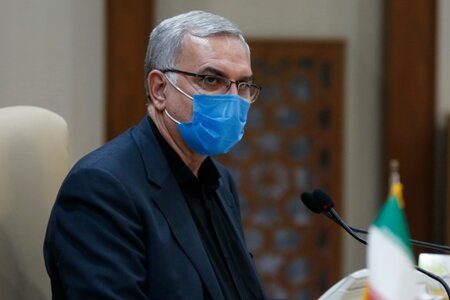National plan on justice in health reform unveiled

TEHRAN – A national plan on justice in health reform was unveiled in the city of Mashhad with Health Minister Bahram Einollahi in attendance.
The plan was unveiled in order to develop the fair quantitative and qualitative indicators of the country's health and medical education, the minister said, adding that strengthening, rearranging, and expanding the country's health network system is one of the most important features of this plan.
“Development of educational justice, fair and balanced distribution of human resources, strengthening the basic health insurance system, improving the quantity and quality of applied research based on people’s needs, providing sustainable resources and reviewing the structure, maximizing the use of health charities, moving towards self-sufficiency in medicine, vaccines, and Equipment, supporting knowledge-based companies, increasing the productivity of medical services, changing the health system from treatment to prevention-centered, promoting community health literacy to increase active self-care and lifestyle reform and combating corruption are among the most important axes of the plan.
Health reform plan
The health reform plan, aiming at decreasing the out-of-pocket expenses for the patients, promoting natural birth, and supporting underprivileged patients suffering from rare or incurable diseases, was launched in the country in May 2014.
It has succeeded in enforcing many of the health-deferred laws and regulations and continues to do so despite all the credit and manpower deficiencies.
Increased access to medicine and treatment was among the achievements of the plan. In addition, 11 million Iranians without any health insurance were covered by public insurance.
Prior to the project, public spending on healthcare services was more than 50 percent. Meanwhile, with the implementation of the plan, the share of payment from the pockets of patients in the field of health has decreased to 32.4 percent.
The plan started supporting physicians in deprived areas, which increased the number of doctors to more than 4,300 general practitioners, specialists, and subspecialists, resulting in increased access to medical treatment.
About 1,100 comprehensive healthcare centers across the country are now offering medical services to patients and providing the necessary care since the onset of the pandemic.
One of the important health capacities that came to the aid of the country in the coronavirus crisis was the electronic health record, and according to former health minister Saeed Namaki, at least 75 million Iranians with a national code can file electronic health records.
FB/MG
Leave a Comment